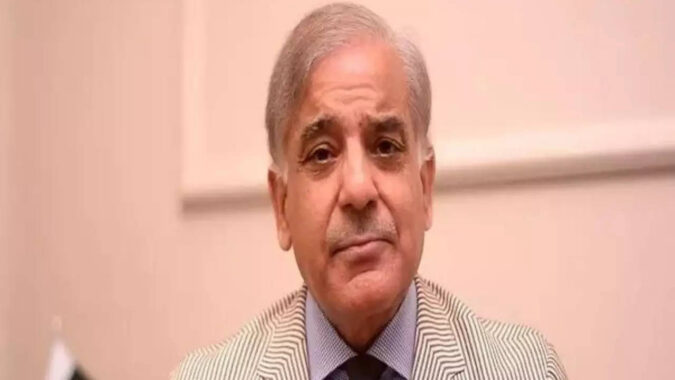“If there is a nuclear flashpoint, who will live to tell what happened?” he said at the inaugural session of the Pakistan Minerals Summit in Islamabad.
“It is equally important that our neighbour understands we cannot become normal neighbours unless abnormalities are removed, and until our serious issues are understood and addressed through peaceful and meaningful discussions,” he said.
Sharif said that if at all the two nations should fight, it should be in terms of economic competition within the region.
The tone and tenor echoed Sharif’s interview to the Dubai-based news channel Al Arabiya in January, in which he spoke of the “three wars with India” and how these had “only brought more misery, poverty, and unemployment to the people”.
But as on that occasion, when he said that India’s political leadership needed to be open to the idea of discussing “burning issues like Kashmir”, Sharif insisted that a dialogue would have no meaning without taking up the contentious topics. He didn’t directly mention Kashmir this time.
India continues to maintain that Pakistan has not addressed the core issue of cross-border terrorism. Responding to Sharif’s latest “outreach”, official sources in New Delhi said Islamabad needed to create conditions conducive for dialogue by reining in terror groups looking for ways to target India.
They said Sharif had made similar remarks in the past that were interpreted as a peace overture, only to clarify later that India first needed to reverse its decision to nullify Article 370 that granted special status to the erstwhile state of J&K.
The Islamabad summit, aimed at increasing FDI in the country, was attended by several national and foreign dignitaries, including army chief Gen Asim Munir.
Sharif’s offer for talks came a day after Islamabad inked six agreements with Beijing as part of the second phase of the $60 billion-odd China-Pakistan Economic Corridor.
The PM said Pakistan was eager to work with the US in the sphere of development, just like it was doing with China. “We really want to have the best of relations with them — just like we used to have in the past, on the basis of mutual respect and trust, and not trying to deceive each other,” he said.
(With inputs from New Delhi)
